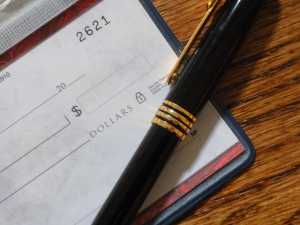|
Personal Budget PlanningThe Benefits of Living on a Budget
Personal budget planning is essential for helping you control spending and reach your financial freedom goals. Learning how to budget money is easy and can be very rewarding.
It is hard to get excited about personal budget planning. In fact, it is something that many of us dread as much as going to the dentist! But in reality, budgets have gotten a bum rap. True, it does take a little bit of effort to make a personal money management budget and even more to stick with it. However, the benefits usually far outweigh the work involved in developing and maintaining a budget. A budget is a major weapon in your arsenal in the battle against debt. In order to know how to eliminate debt, you have to make sure you spend less than you earn. With a budget, you can ensure that your expenses are lower than your income, thus providing a surplus which you can use to pay down your debt. 
Living on a budget also forces you to make thoughtful decisions about what to do with your money. Without a budget, you are more prone to impulse spending. With a budget, you can make rational, unemotional choices for the best way to use your money. Another benefit of personal budget planning is that it helps you allocate your resources to future goals, such as retirement. If you don’t have a budget, it is easy for your money to mysteriously slip through your hands so that you don’t have anything left over to save. When budgeting money, saving for retirement can become a top priority. You will have a plan for adding money to your savings or retirement plan every month. A budget is really just a tool or plan to help you. With it you can better understand:
The whole budgeting process, as explained here, may seem like an overwhelming task. For a simpler way of budgeting, try using the envelope budget system or envelope budgeting software such as YNAB. Personal budget planning is not very exciting, but if used correctly, it can help you know how to reduce financial stress and give you peace of mind knowing that your finances are under control. Budgeting Steps provides ideas and common-sense approaches to personal budgeting, family, household budgeting, and travel budget tips. Including; free tools such as budgeting worksheets, calculators, printable sheets, and tips on how to create a budget, money saving ideas, and earning income at home.
Return from Personal Budget Planning to Financial Freedom Advantage
|




